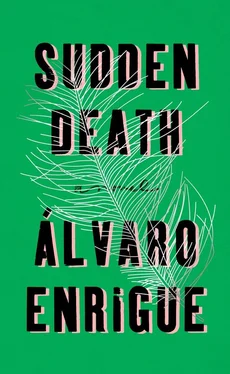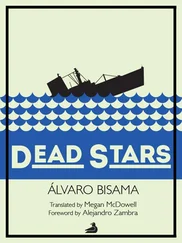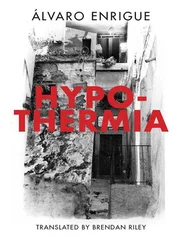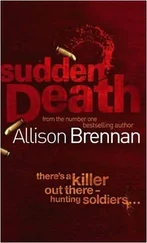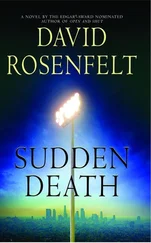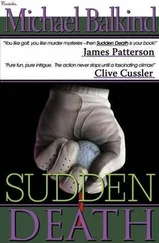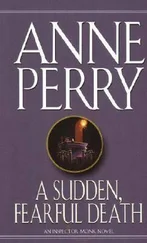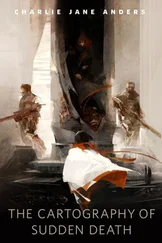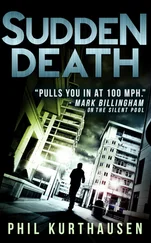By the time the letter from Pope Paul reached the last outpost of Christianity, which just then was the Purépecha village half rising from the ruins of what had once been the imperial city of Tzintzuntzan, everyone was already calling Huanitzin “Don Diego,” and he was still wearing the cotton shirts embroidered with pineapples that he believed were the height of European fashion, as well as his Toledo boots. By now he also read and spoke Latin, utterly garbled by his artilleryman’s ear. Look, said Vasco de Quiroga, handing him the letter on which he had just broken the papal seal of Paul III. The featherworker read it, running his finger under the lines. I’ll go with you, he said at last, so I can pay my regards to Charles.
Don Diego didn’t miss the old gods. His mostly symbolic relationship with the succession of religious beliefs that life had visited upon him was based on rituals that felt just as empty when he offered up his work to the four Tezcatlipocas of the four corners of the earth as when he offered it to the three archangels and the Nazarene. Must we call him the Nazarene, asked Tata Vasco — who greatly enjoyed their conversations — every so often. That’s what he was, Don Quiroga, a Nazarene, and you know that I’d prefer you to call me Don Diego; I wasn’t baptized just to be your latchkey. Lackey, Don Diego, lackey. He liked it that the incense and blessings came only on Sundays and lasted barely an hour — I’ll be back in a splash, he would say at the shop to announce that he was going to mass — and that praying didn’t involve piercing the member with a maguey spine, and that the culmination of the Communion ceremony was just a little piece of unleavened bread and not the corpse stew eaten at the palace under Moctezuma — human flesh was a little gummy and the dish in which it was served was overspiced. He didn’t miss the blood spurting from the sacrificial heart, the hurling of heads at crowds dazed on hallucinogens, the rolling of decapitated bodies down steps.
He did miss the order and hygiene of the Aztec government; the police who did their jobs, the sense of belonging to a tight circle of friends who ruled a world that didn’t stretch very far; the security of knowing that he only had to speak Nahuatl to be understood by everyone. And he was still grieving. No matter how pleasant his situation, he would have preferred that the Spanish invasion had never happened, that his parents had died of old age and not of thirst during the siege; he would have preferred that his wife hadn’t been raped to death by the Tlaxcaltecas and that the Spaniards’ dogs hadn’t eaten his twin daughters. He would have liked to bury his brothers and cousins, killed in combat, and he would have preferred that his brothers’ wives hadn’t been taken as slaves, hadn’t had to choose to throw their babies into the lake rather than see them endure the life that awaited them.
Huanitzin had hidden in the totocalli with his eldest son when the sack of Tenochtitlan began, and the two of them had been saved because Cortés had a weakness for the art of featherwork. With everything lost, Huanitzin had started over, and he felt that he had exchanged one set of privileges for another. His son would never wear the proud calmecac topknot, but he wouldn’t go to war either; he wouldn’t learn the poems that had made the empire great, nor would he enjoy the privilege of being considered an almost sacred artist at the palace, but he had gained the wonderful, liberating joy of horseback riding, and all the things new to Indians that he liked about this world: the shoes, the beef, the elegant shirts with pineapples that were by now the trademark of his house and that in the times of Moctezuma would have been considered an effrontery punishable by death.
No, said Vasco de Quiroga, I think I’ll go alone; it’s a meeting of bishops to save the Church, not the gypsy caravan Cortés brought along to entertain the king. The featherworker shrugged his shoulders: If you need anything, let me know. What could I possibly need? I don’t know — a handsome peasant to take to the pope? A peasant? To flail him, as a sign of our devotion. No one touches His Holiness. Of course, that’s why he’s pope, but I’m sure his bishops flail him. Hail him. That’s right, flail him. Not a handsome peasant, the padre continued to provoke him. Why? He’s a man of God, Huanitzin; he must be eighty years old. It’s a matter of coming up with the right peasant, Huanitzin concluded, wrinkling his brow and fingering the scanty beard he might better have shaved. How can you think of a peasant for the pope? A nice one, answered the Indian. Then, unperturbed, he bid the bishop goodbye: I’m off, it’s raining now.
Though Huanitzin was part of the Tzintzuntzan hospital-town, he decided to build the aviary and his featherworking shop some distance away. Quiroga had decreed that his hospital be built on top of what was once the palace of the Purépecha emperor, and the Indian was of the opinion that it couldn’t be a good place. I’m not going to build a totocalli on that crossload of souls, he’d said, it’ll be the death of my little birds; and then we work at night, there’s no knowing what we’ll see when we have to clot ourselves with mushrooms so we can do mellifluous work. Quiroga accepted his reasoning; it was true that to calibrate the luminescent effect of the precious feathers, the artists worked mostly at night and in environments of controlled light: windowless sheds in which the only sources of light were beeswax tapers. I’ve already chosen the little plot where I’ll build the shop, Huanitzin said to Quiroga; or better yet, why don’t you come and deed me it, since you’re a lawyer.
The plot was a sloping valley that began on a mountainside covered in the black fringe of a pine forest, and it ran down to the shores of a lake. It was completely isolated from the other settlements, the emerald meadow cropped by a flock of sheep, the mountains watchful in the distance. It was by far the most beautiful spot Quiroga had seen in the basin of Lake Pátzcuaro, which was itself, in his opinion — and mine — the most beautiful place in the world. Where are you going to put the shop, the bishop asked the featherworker. The Indian pointed to the top of the valley: Will you deed me the whole valley or just the shop? In Mechuacán there are no deeds, replied the padre; everything belongs to everyone. I ask because it belongs to some Purépecha, said Huanitzin, but they only want it to plant squash and keep sheep. The bishop thought for a moment: You can put the shop here, but only if you start a town of featherworkers. How will I flounder a town, when I have only one son? Bring in the Purépecha. Do you mean I should teach them featherwork? The bishop nodded. And you’ll give me my deeds? Quiroga harrumphed and shook his head: I can give you a declaration of origination. And some deeds for my little shop. No.
For months, another Indian, who called himself a notary and said that he represented the interests of Don Diego de Alvarado Huanitzin and the newly founded village of Nearby, waited from sunup to sundown in the antechambers of the archdiocese without being received by Quiroga. Finally, the bishop made up some deeds just to get rid of him. Only then did he learn that in the perfect valley he had visited with the featherworker, a workshop had already been built, as had houses for five families and a communal dining hall.

The duke lost the composure that he’d been careful to maintain all through the match when he saw how the Lombard drilled the ball into the dedans. Motherfucker, he said. Barral whispered in his ear: We’re in fine shape, boss. Neither of them had ever seen a drive like that, so fast it was almost invisible, so precise it was as if — instead of going into the hole — the ball had been swallowed up by the wall.
Читать дальше
